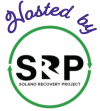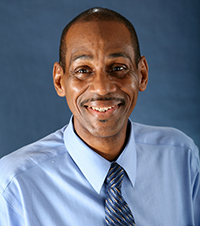Director of Recovery Advocacy
Michael Askew is the Director of Recovery Advocacy for the Connecticut Community for Addiction Recovery (CCAR). In recovery since May 28 1989, Michael has helped many people get into recovery and their health and well-being. He believes his position with CCAR has been an opportunity to “give back what was so freely given to him.” Bridgeport Recovery Community Center since January 2000.
Michael has been a recovery advocate since 1995 speaking across the country and supporting communities with building recovery. He has served on the State of Connecticut Dept of Mental Health and Addiction Services State Advisory Board from 2000 – 2010 supporting the early structuring of their Recovery Oriented System of Care. He has served on the Police Activities League Board of Directors in Norwalk, CT, and has been a long-time Board Member of The Mid-Fairfield Aids Project. He currently is Chairman, Projecto Nueva Vida and Vice Chairman of the Board of New Lifestyles Transitional Housing for Women.
Early in his career, Michael work a lot in the prisons garnishing him a 1996 Weed & Seed Recognition Award, 1999 Addiction Services Volunteer of the Year at Bridgeport Correctional Center, 2000 Black History Month Unsung Heroes from SAMHSA, and many other awards.
He has also received the 2012 Save our Babies Award, 2012 Mary Freeman Award, 2014 Lurline W. Reid Award, and the 2014 Urdang-Torres Community Impact Award among others. In 2017, Michael received the “Vernon Johnson” Individual Recovery Advocate Award at America Honors Recovery, Washington, DC. In 2018, Michael received the “Spirit Of Hope Award” from Liberation Programs.
Michael understands from firsthand experience, the plight of the incarcerated having spent some time in prison because of his addiction. Michael wants to see more treatment and recovery options instead of prison sentencing for alcoholics and addicts. “My concerns are for all persons to be able to receive the support and treatment they deserve with dignity and respect.”
“I am continually fueled to find ways to share purpose beyond pain when issues of criminalization, reproductive injustice, and barriers prevent people from seeking treatment, staying in care and living the abundantly full life they deserve.” My hope and mission are that my voice can be heard to make the change that society has been somewhat reluctant to hear but those affected and infected will be excited to hear.

